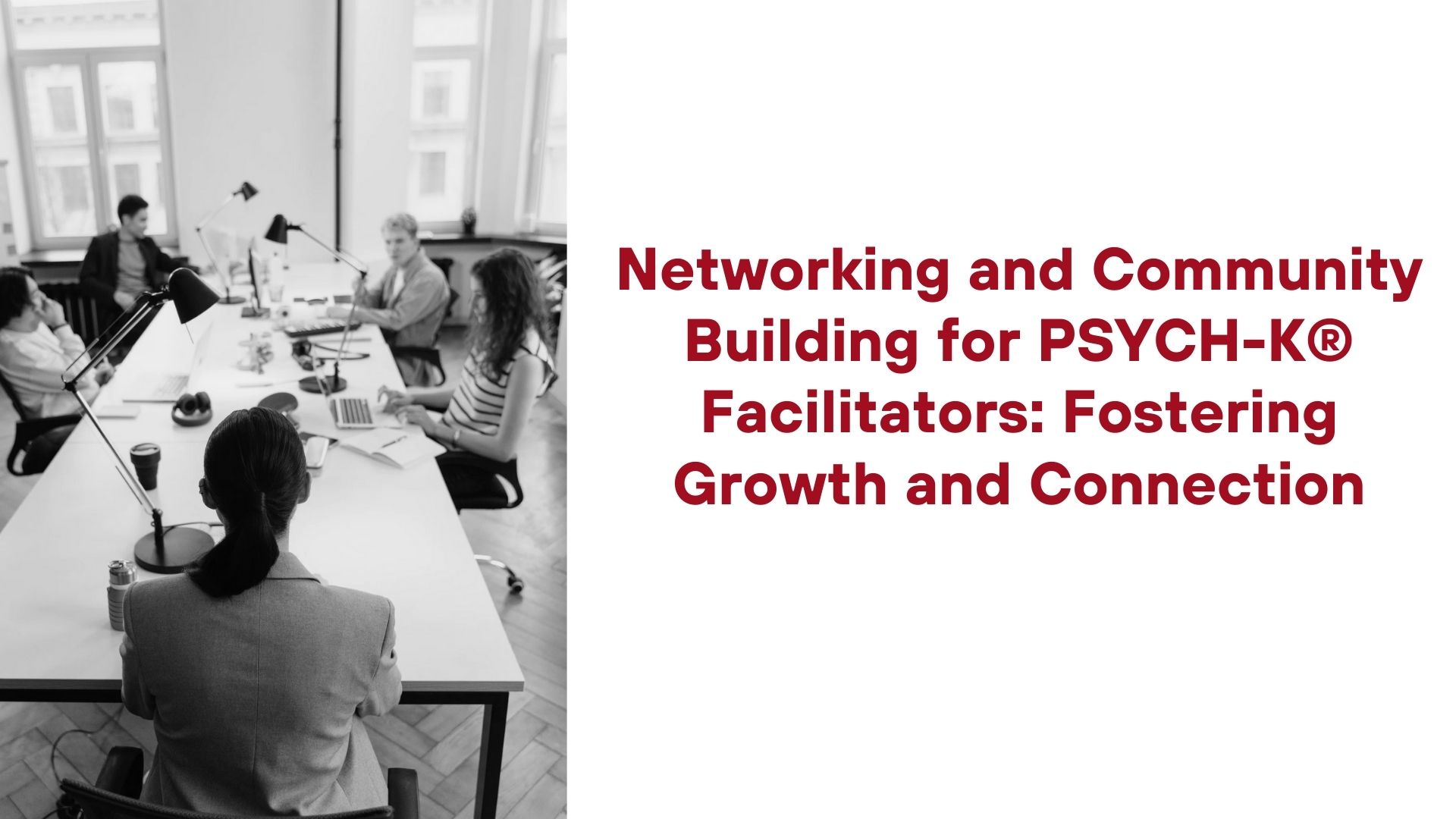In the world of PSYCH-K®, where the power of belief change and subconscious transformation is at the forefront, networking and community building play a pivotal role in the success and growth of facilitators. As a PSYCH-K® facilitator, your journey extends beyond mastering the techniques; it involves creating a supportive and thriving community that fosters growth, learning, and mutual encouragement. This article delves into the importance of networking and community building for PSYCH-K® facilitators, exploring strategies to enhance your connections and build a strong, supportive network.
The Importance of Networking in PSYCH-K®
Networking is the backbone of any successful professional journey, and this holds especially true for PSYCH-K® facilitators. The practice of PSYCH-K® is deeply rooted in personal growth, transformation, and healing. Facilitators often work in solo practices or small groups, making it crucial to establish connections with others in the field. Networking provides facilitators with opportunities to exchange knowledge, share experiences, and learn from one another’s successes and challenges.
One of the key benefits of networking is the ability to stay informed about the latest developments in PSYCH-K® and related fields. By connecting with fellow facilitators, you gain access to a wealth of information, including new techniques, research findings, and case studies. This exchange of knowledge not only enhances your skills but also keeps you updated with the evolving landscape of PSYCH-K®, ensuring that your practice remains relevant and effective.
Building a Supportive Community
Community building is about more than just networking; it’s about creating a sense of belonging and mutual support among PSYCH-K® facilitators. A strong community provides a safe space for facilitators to share their experiences, seek advice, and offer support to one another. It fosters an environment where facilitators can collaborate, learn, and grow together.
Building a supportive community starts with active participation in PSYCH-K® events, workshops, and online forums. Engaging in these activities allows you to connect with like-minded individuals who share your passion for PSYCH-K®. Whether it’s attending a local workshop, joining an online discussion group, or participating in a facilitator meetup, these interactions are invaluable in creating meaningful connections.
Another important aspect of community building is mentorship. Experienced facilitators can play a vital role in guiding newcomers, offering insights and advice that can help them navigate the challenges of their journey. Similarly, newer facilitators bring fresh perspectives and enthusiasm that can invigorate the community. By fostering a culture of mentorship, the PSYCH-K® community can thrive, ensuring that all members feel supported and valued.
Strategies for Effective Networking and Community Building
Attend PSYCH-K® Workshops and Events:
One of the most effective ways to network and build community is by attending PSYCH-K® workshops and events. These gatherings provide an opportunity to meet fellow facilitators, learn new techniques, and engage in meaningful discussions. Whether it’s a local workshop or a larger conference, these events are a goldmine for building connections.
Leverage Social Media and Online Platforms:
In today’s digital age, online platforms offer a convenient way to connect with other facilitators. Joining PSYCH-K® groups on social media, participating in webinars, and engaging in online forums can help you stay connected with the broader community, even if you’re in a remote location.
Host or Participate in Local Meetups:
Organizing or attending local meetups is an excellent way to build community in your area. These informal gatherings allow facilitators to connect on a personal level, share experiences, and offer support to one another. Local meetups can also serve as a platform for discussing specific topics or challenges in your practice.
Collaborate on Projects:
Collaboration is a powerful tool for building relationships within the PSYCH-K® community. Whether it’s co-facilitating a workshop, writing a blog post together, or conducting joint research, collaborative projects bring facilitators closer and create opportunities for mutual growth.
Participate in Mentorship Programs:
If you’re an experienced facilitator, consider offering mentorship to newcomers. If you’re new to the field, seek out a mentor who can guide you on your journey. Mentorship not only strengthens the community but also provides valuable learning experiences for both mentors and mentees.
Contribute to the Community:
Sharing your knowledge and experiences with the PSYCH-K® community is a great way to give back and strengthen your connections. Whether it’s writing articles, giving talks, or offering free sessions, your contributions can make a significant impact and enhance your visibility within the community.
The Long-Term Benefits of Networking and Community Building
The long-term benefits of networking and community building for PSYCH-K® facilitators are profound. By creating strong connections and fostering a supportive community, you enhance your practice, gain access to valuable resources, and build a network of trusted colleagues. These relationships can lead to new opportunities, collaborations, and a deeper understanding of PSYCH-K®.
Moreover, being part of a community provides emotional support, helping you navigate the challenges and uncertainties that can arise in your practice. The encouragement and camaraderie from fellow facilitators can be a source of inspiration and motivation, keeping you grounded and focused on your mission.
Conclusion
Networking and community building are essential components of a successful PSYCH-K® practice. As a facilitator, your ability to connect with others, share knowledge, and build a supportive network will not only enhance your personal and professional growth but also contribute to the overall strength of the PSYCH-K® community. By actively engaging in networking and community-building activities, you create a thriving ecosystem that benefits all members, fostering an environment of growth, learning, and mutual support. Embrace the power of connection, and watch your practice—and the entire PSYCH-K® community—flourish.

